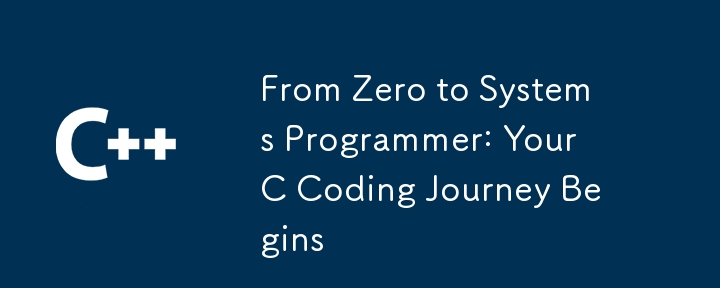
The essential C programming guide to becoming a systems programmer: Master the basics: Understand data types, operators, and control flow. Use functions and pointers: Functions break code into reusable chunks, and pointers allow direct access to memory. Perform memory management: effectively allocate and release memory to improve program efficiency. Practical application: Create a file I/O program to read the content from the input file and copy it to the output file.

C language is famous for its simplicity, efficiency and low-level access capabilities Well-known as the cornerstone on which operating systems, embedded systems, and other critical software are built. For those who wish to become systems programmers, proficiency in C is indispensable.
Requirements:
Write a C program to read a file from user input and convert it to The contents are copied to another file.
Code:
#include <stdio.h>
#include <stdlib.h>
int main() {
// 声明文件指针
FILE *inputFile, *outputFile;
// 打开输入文件
inputFile = fopen("input.txt", "r");
if (inputFile == NULL) {
fprintf(stderr, "无法打开输入文件.\n");
exit(1);
}
// 打开输出文件
outputFile = fopen("output.txt", "w");
if (outputFile == NULL) {
fprintf(stderr, "无法打开输出文件.\n");
exit(1);
}
// 从输入文件逐个字符地读取内容并复制到输出文件
char c;
while ((c = fgetc(inputFile)) != EOF) {
fputc(c, outputFile);
}
// 关闭文件
fclose(inputFile);
fclose(outputFile);
return 0;
}Description:
fopen() function to open the input and Output file. fgetc() function. fputc() function. EOF is a special constant that represents the end of the file. fclose() function releases the resources associated with the file. Becoming proficient in C programming takes time and effort. By practicing the above concepts and building your own projects, you will gradually improve your skills and become a qualified systems programmer.
The above is the detailed content of From Zero to Systems Programmer: Your C Coding Journey Begins. For more information, please follow other related articles on the PHP Chinese website!




